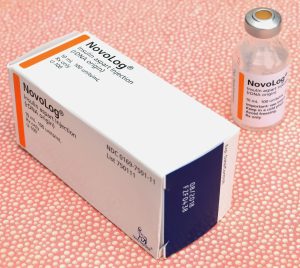 Most Americans, both men, and women, desire to lose weight, at least at some point in their life. It gets harder and harder to keep the pounds off as you age.
Most Americans, both men, and women, desire to lose weight, at least at some point in their life. It gets harder and harder to keep the pounds off as you age.
Why is this? What is changing in our bodies as we get older that makes it so much harder to maintain a lean and trim figure? It all comes down to hormones.
They significantly influence how much weight a person gains or loses over time. Let’s discuss these hormones below.
Hormones are One Factor in Causing Obesity
 There are multiple reasons someone might become overweight or obese, and one of these reasons is hormones. We consider hormones to be chemical messengers that send signals throughout the body in order to kick-start specific bodily processes.
There are multiple reasons someone might become overweight or obese, and one of these reasons is hormones. We consider hormones to be chemical messengers that send signals throughout the body in order to kick-start specific bodily processes.
The top hormones that affect weight are leptin, insulin, sex hormones, and growth hormone by, impacting appetite, metabolism, and the distribution of body fat on your frame. Sometimes, certain levels of these hormones could increase or decrease to a point where it causes slow metabolism or increased fat storage.
Leptin
Leptin is actually manufactured by fat cells and goes into our bloodstream. It signals our brains that we should stop eating and reduces our appetite. It also affects our storage of body fat. What is interesting is that because obese people have more fat cells, they produce higher levels of leptin.
However, these signals seem not to be getting through, and people who are obese appear to be less sensitive to leptin signals. More research needs to be conducted to find out why this is.
Insulin
Insulin is made in the pancreatic cells and is necessary for regulating carbohydrate metabolism and fat. It tells the cells to take in glucose from the blood and store it as glycogen in the muscles, liver, and fat cells.
It’s an incredibly important part of our metabolism (hence why type 1 or 2 diabetes is such a big deal). It ensures that glucose and stored energy (glycogen) are used throughout the day.
 When someone is obese, insulin is less able to access the cells to tell them to take in insulin, and the signals get missed or mixed up. The tissues then have trouble controlling glucose levels, and type 2 diabetes can develop.
When someone is obese, insulin is less able to access the cells to tell them to take in insulin, and the signals get missed or mixed up. The tissues then have trouble controlling glucose levels, and type 2 diabetes can develop.
Sex Hormones
Sex hormones, specifically estrogens and androgens, influence where body fat is stored in the body. Estrogen is mainly produced by women, which triggers ovulation and helps maintain a pregnancy. Men produce estrogen as well, but more so androgens, like testosterone.
Where body fat is stored is essential because if there is more fat in the abdomen, then there is a higher risk of developing a disease such as a stroke, arthritis, or heart disease. It is better for fat to be stored on the buttocks, hips, or thighs. Women of childbearing age tend to store fat in the lower body (with a “pear shape”), whereas older men and postmenopausal women tend to store fat in the abdomen (with an “apple shape”).
As a man ages, his androgen, or testosterone levels, tend to decrease, with increased estrogen levels, leading to increased fat storage.
Growth Hormone
 Growth hormone is produced by the pituitary gland, which is located within the brain.
Growth hormone is produced by the pituitary gland, which is located within the brain.
It’s a hormone that is particularly important for children in order to signal rapid growth, which includes not just an adolescent’s height, but bone and muscle growth.
It also plays a role in metabolism. Growth hormone levels are significantly lower in obese patients than in patients of average weight.
In fact, patients who have started a hormone replacement therapy (HRT) program with growth hormone has experienced significant weight loss. Adults suffering from growth hormone deficiency tend to experience weight gain (especially around the abdomen) due to the fact that growth hormone plays a crucial role in maintaining a healthy metabolism.
If you have been experiencing unexplained weight gain as you’ve gotten older, it may be best to get the levels of each of these hormones checked via a blood test. It’s super easy, and we can get you started today!
Reference
Contact Us For A Fast And Professional Response

- Testosterone Therapy and the Heart. Is It Worth the Risk? [Last Updated On: October 5th, 2024] [Originally Added On: March 5th, 2021]
- 13 Natural Ways to Increase Longevity and Quality of Life [Last Updated On: January 14th, 2025] [Originally Added On: April 26th, 2021]
- Perimenopause is a Real Thing – and Women are Trying to Bring More Attention to It [Last Updated On: January 6th, 2025] [Originally Added On: May 18th, 2021]
- How to Limit Your Exposure to Phthalates [Last Updated On: August 17th, 2024] [Originally Added On: May 21st, 2021]
- Hormone Imbalance a Major Factor in “Brain Fog” Symptoms [Last Updated On: January 8th, 2025] [Originally Added On: May 24th, 2021]
- Chronic Stress is a Major Factor in Causing Hair Loss [Last Updated On: January 14th, 2025] [Originally Added On: June 15th, 2021]
- Can Drinking Alcohol Affect My Hormone Levels? Part 1 [Last Updated On: January 10th, 2025] [Originally Added On: July 28th, 2021]
- Ask the Experts: How Do I Live Longer? [Last Updated On: March 4th, 2025] [Originally Added On: September 21st, 2021]
- Crazy-Making Hormone Problems [Last Updated On: January 12th, 2025] [Originally Added On: October 5th, 2021]
- Why Does the Middle East Have the Lowest Cancer Rates Across the Globe? [Last Updated On: January 23rd, 2025] [Originally Added On: January 31st, 2022]
- More Muscle = Better Cancer Fighter [Last Updated On: January 22nd, 2025] [Originally Added On: March 15th, 2022]
- A Tale of Two Friends -- Hormone Deficiency Testimonials [Last Updated On: January 19th, 2025] [Originally Added On: March 30th, 2022]
- Poor Sleep Wrecks Your Hormones and Your Libido [Last Updated On: January 3rd, 2025] [Originally Added On: July 1st, 2022]
- Suppressing Hormones Can Improve Success Rate of Melanoma Treatment [Last Updated On: January 26th, 2025] [Originally Added On: August 7th, 2022]
- Blue Zones - Cultures of Longevity [Last Updated On: November 20th, 2024] [Originally Added On: November 23rd, 2022]
- Toe-Tapping Time [Last Updated On: February 3rd, 2025] [Originally Added On: November 30th, 2022]
- How Long Until HGH Benefits Kick In? [Last Updated On: February 26th, 2025] [Originally Added On: June 10th, 2023]
- Understanding the Timeline of HGH Benefits [Last Updated On: February 17th, 2025] [Originally Added On: February 17th, 2025]
- The Quest for a Longer Life: An Overview [Last Updated On: February 19th, 2025] [Originally Added On: February 19th, 2025]

















